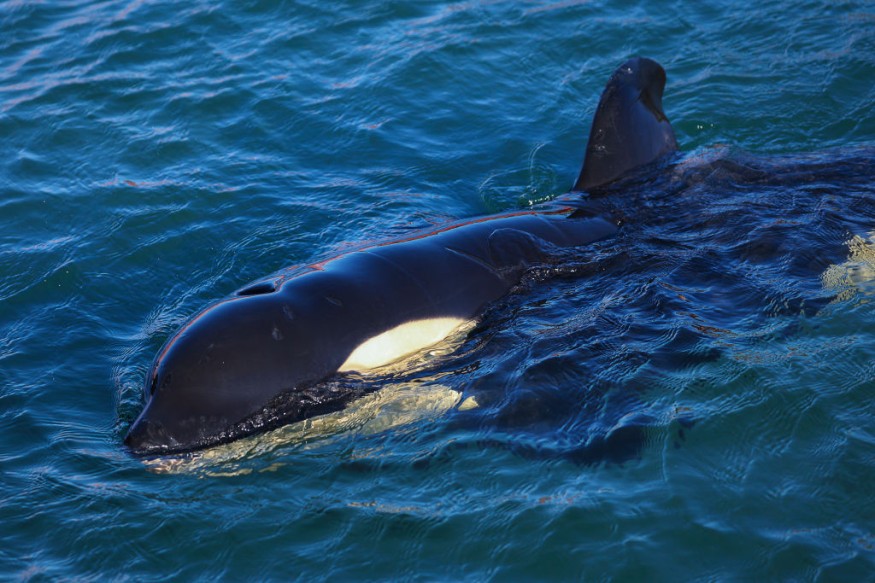Scientists have discovered and documented the first three records of orcas (Orcinus orca), also known as killer whales, successfully hunting and killing adult blue whales (Balaenoptera musculus). The records were officially published in the journal Marine Mammal Science on January 21.
First Three Recorded Blue Whale Killings

Scientists first revealed the predation in late March 2019 during the annual whale and dolphin research surveys spearheaded by the Cetacean Research Center (CETREC) in Western Australia. Experts described orcas as "ferocious, with a preference for squid, fish and beaked whales," as per 9News Australia.
The first recorded killing was not considered as an average hunt since it involved 12 orcas targeting an adult blue whale off the coast of Bremer Bay in southwestern Australia.
The orca attack in March 2019 is said to be the first time humans have documented orcas successfully hunting and eating a blue whale. Although there have been instances of recorded orca attacks on blue whales in the past, the three recorded predation events are the first confirmed kills by orcas on blue whales.
The new study has recorded a total of three cases of orcas successfully killing the blue whales. The second record took place in April 2019 and the third record was in March 2021, according to National Geographic.
Orcas as the Apex Predator
Robert Pitman, a marine ecologist at Oregon State University's Marine Mammal Institute and co-author of the study, reported in National Geographic: "This is the biggest predation event on this planet: the biggest apex predator taking down the biggest prey."
Some orcas are known to only prey on fish and marine mammals like sea lions, but the recent study shows that orcas are certainly capable of hunting large animals.
The recorded blue whale killings are significant since prior to the new study's publication, only previous sightings and unconfirmed accounts were the basis of a potential blue whale killing by an orca. In some of these unconfirmed killings, blue whale calves were the most targeted.
For instance, in May 2021, video footage by a local sailor off the coast of Nanaimo in Vancouver, Canada, showed a group of orcas apparently attacking a humpback whale and its calf in the Salish Sea, as per Live Science
The footage shows the orcas slamming their bodies on the whales. It also revealed that 13 orcas may have attacked the whale.
Orcas belong to the dolphin family and are the largest member of this group. Orcas are characterized by their short but sharp teeth and black-and-white body color.
These killer whales can be found across all of the world's oceans except in the Baltic and Black seas. Based on the recorded blue whale killings, orcas resemble highly intelligent and usually conduct their killings through coordinated attacks.
Following the study's publication, CETREC lead researcher and led author, John Totterdell, stated there is a need to further understand killer whale population ecology to determine the orcas' impact in Australia's waters.
Related article: Killer Whales Live Up to Their Name in Whale-on-Whale Predation
© 2025 NatureWorldNews.com All rights reserved. Do not reproduce without permission.




